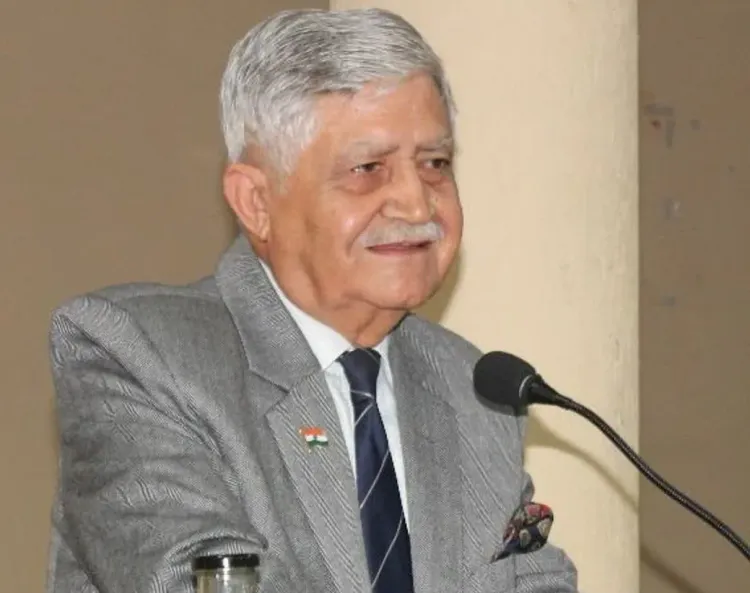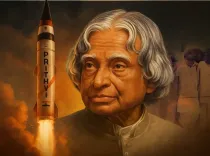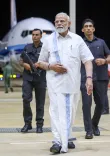How has India transitioned from restraint to retaliation under PM Modi? Insights from Gen VP Malik (ReTD) on Kargil Vijay Diwas

Synopsis
Key Takeaways
- Shift from restraint to assertiveness in military doctrine under PM Modi.
- Importance of intelligence and surveillance in national security.
- Unmatched bravery of soldiers is a national asset.
- Political unity is crucial for national security.
- Lessons from Kargil continue to be relevant today.
New Delhi, July 26 (NationPress) On this significant day marking the 26th anniversary of India's triumph in the Kargil War, General VP Malik (Retd), who commanded the Indian Army during the 1999 conflict, shared his insights exclusively with IANS on Saturday.
Reflecting on the evolution of India's security strategy, Gen Malik praised the transition from a cautious to a more assertive military stance under Prime Minister Narendra Modi.
He highlighted the stark differences in leadership styles between Atal Bihari Vajpayee and PM Modi, underscoring the necessity for political cohesion on national security matters while cautioning against political disputes in Parliament.
Interview excerpts:
IANS: As you look back 26 years, what are your most vivid memories from the Kargil War?
Gen VP Malik: Numerous memories flood my mind - from the initial surprise of the incursion to the difficulties faced in challenging terrain with limited intelligence and resources. However, what remains most prominent is the extraordinary courage of our soldiers and officers. Many made the ultimate sacrifice, fighting with valor until the very end. Their indomitable spirit continues to motivate future generations.
IANS: Having experienced two significant leadership eras - from Atal Bihari Vajpayee to PM Modi, how do you evaluate their defense and national security approaches?
Gen VP Malik: Both leaders are exceptional in their own right. Vajpayee was more informal, consultative, and compassionate. He always prioritized the needs of our soldiers and martyrs without any delay. Although his time in office was shorter, his restraint-based strategy during Kargil was diligently implemented through his Cabinet Committee on Security. In contrast, PM Modi has embraced a more proactive doctrine. Border infrastructure has experienced substantial enhancements, and there is a strong emphasis on 'aatmanirbharta' in defense. We are now manufacturing world-class weaponry, including BrahMos and Akash, and other nations are taking note. This transformation was long overdue, and it is encouraging to witness its realization.
IANS: In what ways has India's military doctrine progressed since Kargil?
Gen VP Malik: There is a clear transformation. During Kargil, we adhered strictly to a policy of restraint, refraining from crossing the Line of Control or the international border. Today, under Modi's leadership, our doctrine is distinctly more assertive. From surgical strikes to the Balakot airstrikes and most recently Operation Sindoor, the armed forces now possess greater strategic flexibility and support.
IANS: What lessons from Kargil remain pertinent today?
Gen VP Malik: The most significant lesson is the necessity for constant vigilance and improved intelligence gathering. Intelligence and surveillance must consistently be a top priority. Moreover, the bravery of our soldiers during Kargil serves as a timeless testament to courage and patriotism.
IANS: How do you compare the Kargil conflict with Operation Sindoor? What were the challenges and successes of both?
Gen VP Malik: While the political objectives were clear in both scenarios, the manner in which we conduct warfare has evolved significantly. In Kargil, we were lacking in modern equipment and technological support. Today, we possess cutting-edge systems and are effectively utilizing them. Nonetheless, the one constant in both operations is the unrivaled bravery of our soldiers - that remains our greatest national asset.
IANS: There have been political discussions regarding Operation Sindoor in Parliament. What is your stance on this? Should such matters be addressed in Parliament?
Gen VP Malik: National security should never be a matter of political contention. Historically, defense and foreign policy issues were not openly debated. Critique or review can occur later - as exemplified by the Kargil Review Committee after the war - but questioning the government during operations only undermines the morale of our armed forces. Parliament must exercise restraint and responsibility in these matters.







